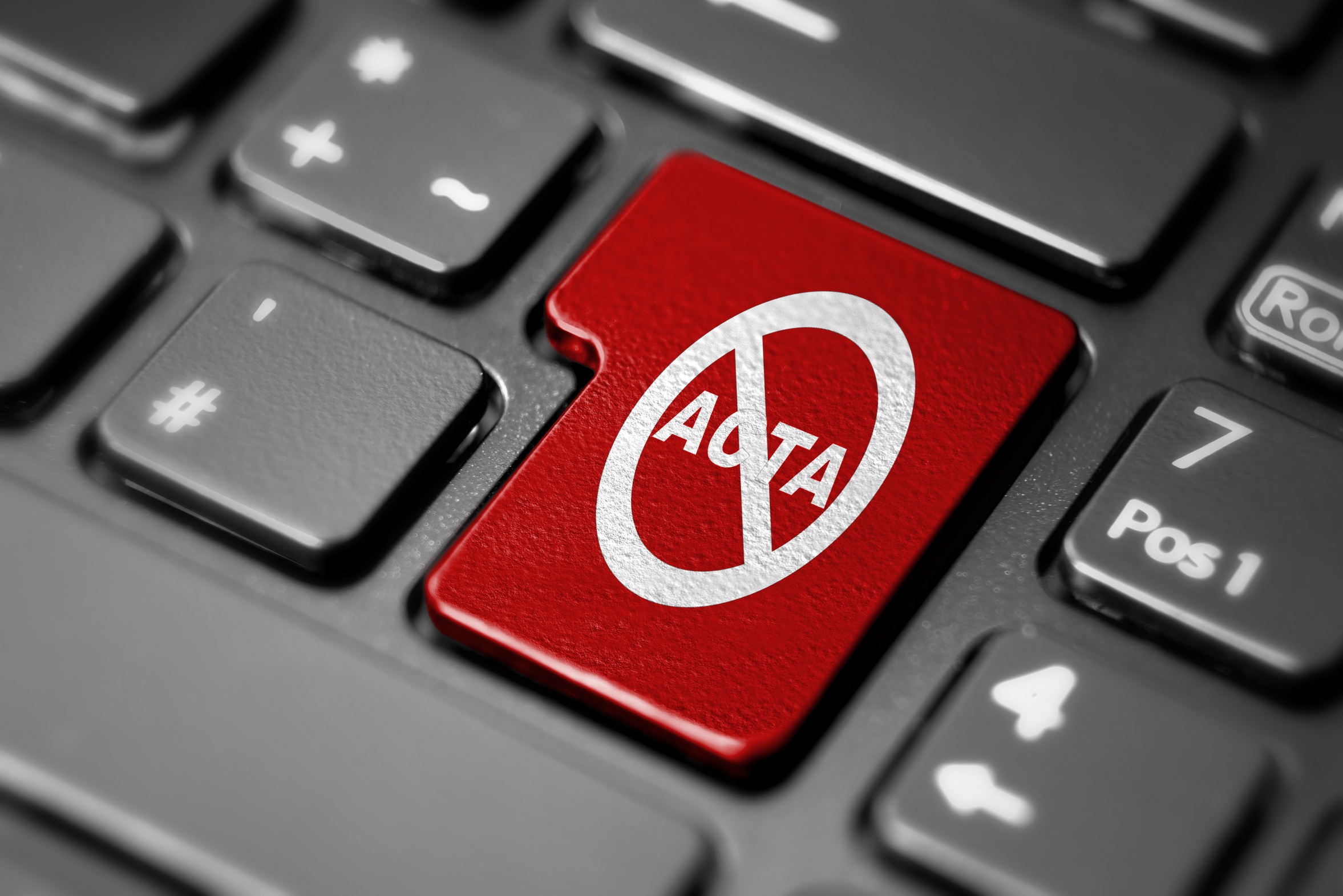ACTA legality set for EU court scrutiny
The European Court of Justice is being asked to look into the legality of the controversial parts of ACTA.

Sign up today and you will receive a free copy of our Future Focus 2025 report - the leading guidance on AI, cybersecurity and other IT challenges as per 700+ senior executives
You are now subscribed
Your newsletter sign-up was successful
The European Court of Justice (ECJ) has been asked today to rule on the legality of the Anti-Counterfeiting Trade Agreement (ACTA).
Comissioner Karel De Gucht said the European Commission was planning to ask Europe's highest court to "asses whether ACTA is incompatible in any way with the EU's fundamental rights and freedoms."
The European Commission has already passed ACTA to national governments for ratification, however, while the Council has unanimously adopted ACTA and authorised member states to sign the agreement.
So far, the agreement has been signed by 22 member states.
ACTA has given rise to concern among the European public, with protests being held across the continent in opposition to the agreement. in particular, there is a growing concern about internet censorship and loss of freedoms of speech and expression.
If the Commission expects these protests about clumsy and dangerous internet policies to fade away, they are very much mistaken.
De Gucht said this was something the EC recognised.
Sign up today and you will receive a free copy of our Future Focus 2025 report - the leading guidance on AI, cybersecurity and other IT challenges as per 700+ senior executives
"Let me be very clear: I share people's concern for these fundamental freedoms," he said.
"I welcome that people have voiced their concerns so actively especially over the freedom of the internet. And I also understand that there is uncertainty on what ACTA will really mean for these key issues at the end of the day.
"I believe that putting ACTA before the European Court of Justice is a needed step. This debate must be based upon facts and not upon the misinformation or rumour that has dominated social media sites and blogs in recent weeks."
Vice president of the European Commission, Viviane Reding, explained in a statement that freedoms of expression, speech and intellectual property are fundamental EU rights.
"Intellectual property is also a fundamental right recognised by the EU's Charter of Fundamental Rights," Reding said.
"European policy therefore should aim at mutually balancing the respect for both fundamental rights, without calling into question their essence. Freedom of information and intellectual property rights must not be enemies; they should be partners."
De Gacht still took time to defend ACTA, however.
"So let me be clear: ACTA will change nothing about how we use the internet and social websites today since it does not introduce any new rules. ACTA only helps to enforce what is already law today," he said.
"ACTA will not censor websites or shut them down; ACTA will not hinder freedom of the internet or freedom of speech."
The European Publisher's Council (ECP) has released a statement backing the plans to ratify ACTA.
"Failure to ratify ACTA would jeopardise the future of secure copyright protection at EU level just at the moment when the European Commission is about to review the copyright directive," said Angela Mills Wade, executive director of the EPC.
However, De Gachts argument has not convinced everyone. Peter Bradwell of the Open Rights Group was concerned the EC was simply buying time with today's announcement.
"The European Commission has a vested interest in seeing ACTA pass. They get to choose the question asked of the Court. They show every sign of making sure they get the answers they want to try to give ACTA a fig leaf of legitimacy," Bradwell said.
"And this is also clearly an attempt by the Commission to pause the ratification process in the hope that protests lose their heat."
Bradwell insisted that the resistance to ACTA will continue.
"If the Commission expects these protests about clumsy and dangerous internet policies to fade away, they are very much mistaken. Citizens across Europe have found their voice," he said.
-
 European Commission approves data flows with UK for another six years
European Commission approves data flows with UK for another six yearsNews The European Commission says the UK can have seamless data flows for another six years despite recent rule changes
-
 UK government to fund regional tech programs up to £20m
UK government to fund regional tech programs up to £20mnews Local and regional partnerships invited to bid for support for established or developing projects
-
 Three things you need to know about the EU Data Act ahead of this week's big compliance deadline
Three things you need to know about the EU Data Act ahead of this week's big compliance deadlineNews A host of key provisions in the EU Data Act will come into effect on 12 September, and there’s a lot for businesses to unpack.
-
 The second enforcement deadline for the EU AI Act is approaching – here’s what businesses need to know about the General-Purpose AI Code of Practice
The second enforcement deadline for the EU AI Act is approaching – here’s what businesses need to know about the General-Purpose AI Code of PracticeNews General-purpose AI model providers will face heightened scrutiny
-
 Meta isn’t playing ball with the EU on the AI Act
Meta isn’t playing ball with the EU on the AI ActNews Europe is 'heading down the wrong path on AI', according to Meta, with the company accusing the EU of overreach
-
 ‘Confusing for developers and bad for users’: Apple launches appeal over ‘unprecedented’ EU fine
‘Confusing for developers and bad for users’: Apple launches appeal over ‘unprecedented’ EU fineNews Apple is pushing back against new app store rules imposed by the European Commission, suggesting a €500m fine is a step too far.
-
 Government’s ‘Humphrey’ AI tool helps local authorities cut costs
Government’s ‘Humphrey’ AI tool helps local authorities cut costsNews The Minute tool, part of the Humphrey AI assistant, is being trialled at 25 councils
-
 The UK government hopes AI will supercharge public sector digital transformation – IT leaders aren’t so sure
The UK government hopes AI will supercharge public sector digital transformation – IT leaders aren’t so sureNews Research from SolarWinds shows public sector transformation is progressing at a snail's pace despite IT leaders pushing for rapid improvements.

